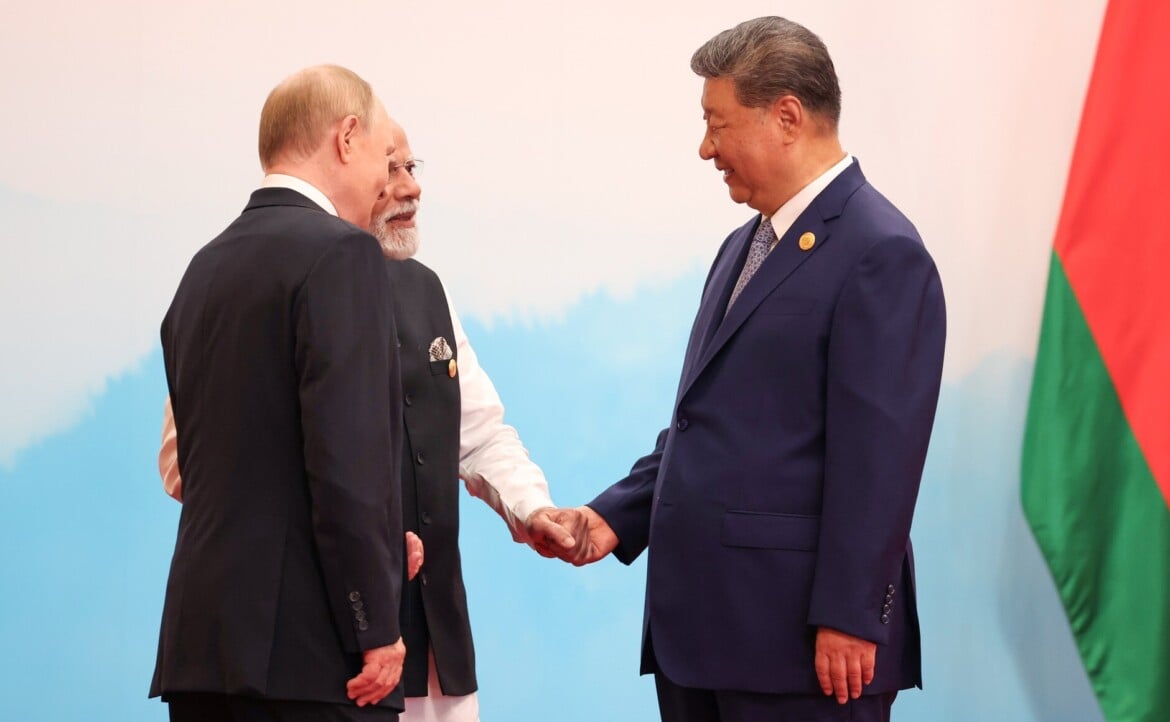Analysis
Xi Jinping offers China as the new seat of ‘democratized’ global commerce
At the Tianjin summit, which ended on Monday, September 1, China called for the forces of the so-called “Global South” to join together, led by a new global development organization.

Xi Jinping called it a privileged instrument to “democratize international relations” and the engine of “true multipolarism.” Vladimir Putin called it the “global majority.” Or, as the Chinese media claimed: “No longer a silent majority, but a new force that makes its voice heard.” The SCO (Shanghai Cooperation Organisation) is trying to establish itself as a credible alternative for the development of the global order, aided by general dissatisfaction with Donald Trump’s tariffs and uncertainty about the United States’ international stance.
At the Tianjin summit, which ended on Monday, September 1, China called for the forces of the so-called “Global South” to join together, a label adopted by a plethora of countries which don’t always have common goals and needs – including regional rivals like India and Pakistan. In his keynote speech, Xi called for adherence to a “fairer and more just” multilateralism, rejecting the “hegemonic logic, bullying and the Cold War mentality” of bloc confrontation.
Beijing wants to act as the spokesperson for the demands of developing countries, presenting itself as a supportive partner capable of bringing not only words but also multifaceted resources to the table.
Xi promised two billion yuan (about $280 million) in non-repayable grants for 2025 and another $1.3 billion in loans to an interbank consortium over the next three years, then called for strengthening cooperation within the Belt and Road Initiative. Beijing wants to expand the SCO’s scope, moving beyond the security realm to also embrace trade and diplomacy. This ambition is aided by the thaw of relations with India.
The presence of Narendra Modi, in addition to Vladimir Putin, removes several obstacles to the creation of a Eurasian axis. In their first bilateral meeting on Chinese soil in seven years, Xi and the Indian prime minister expressed hope that “the dragon and the elephant” could dance together as “partners,” not rivals.
Xi announced the establishment of three cooperation platforms on energy, the digital economy, and the green technology industry. The final joint document (the “Tianjin Declaration,” which resembles a true political platform) and the SCO’s strategic development vision for the next ten years call for the “rapid” creation of a development bank for the group. Beijing considers this a crucial instrument for promoting interchange and the use of national currencies in commercial transactions, instead of the U.S. dollar.
Through these instruments, China intends to consolidate its image as a provider of global public goods, implicitly positioning itself against a West that emerging economies often perceive as conditional and restrictive. Another central piece is the technological dimension. The decision to create a cooperation center on artificial intelligence and to invite SCO members to join the Beidou satellite system (the anti-GPS) and the Chinese lunar program should be interpreted as a clear signal: Beijing wants to position itself not only as a commercial and financial hub but as a leader in science and technology. In a context where the United States is trying to contain China’s access to advanced technologies, the SCO is becoming a field of strategic partnerships for Beijing, capable of guaranteeing critical mass and political support.
For his part, Putin was keen to reiterate several times that he had informed Xi and Modi of the progress of the talks with Trump after the summit in Alaska. It was a way of showcasing his own partnerships, strengthened despite punitive tariffs on the purchase of Russian oil.
The summit reinforced the SCO’s image as a growing political forum: from the original six countries to 10 permanent members and 16 partners, including observers and dialogue partners, with avenues for membership for Armenia and Azerbaijan. Alignment appears strong, especially on trade and in opposition to tariffs and sanctions. But the absence of a common vision on the most urgent crises, from Ukraine to the Middle East, remains a reality, as is evident from the caution of the joint statement on Gaza compared to the much more critical comments toward Israel from Turkish President Erdoğan, who was present at the SCO Plus meeting with partner countries. According to many analysts, it is possible that the symbolic significance will continue to be prevalent over the concrete and operational dimension. Certainly, China intends to capitalize on the widespread discontent with the current international order, perceived by many as unbalanced and punishing.
Meanwhile, Kim Jong-un also arrives in China on, Tuesday, having left North Korea on Monday aboard his armored train to join Xi and Putin at the grand military parade in Tian'anmen Square, with which Beijing will celebrate the 80th anniversary of the victory against Japan on Wednesday.
Originally published at https://ilmanifesto.it/tutti-alla-corte-di-xi-jinping-la-sfida-e-globale on 2025-09-02
